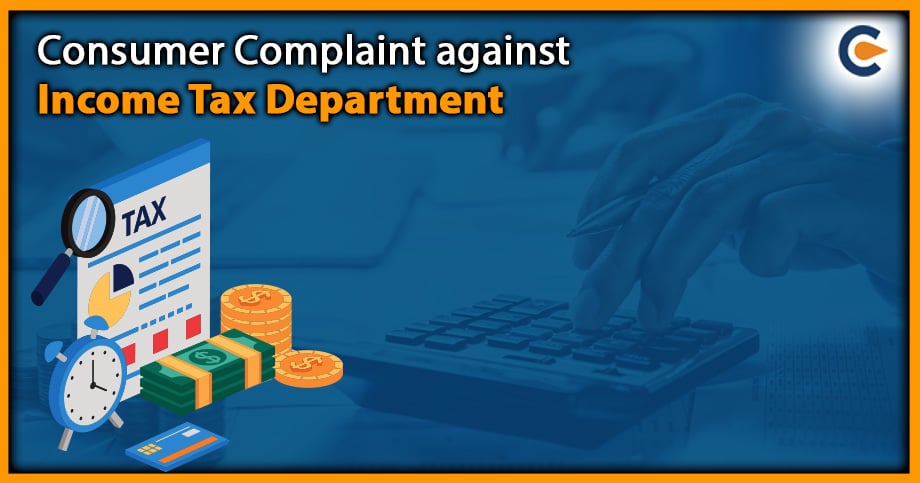Consumer courts, also known as consumer forums or consumer dispute redressal forums, are specialized courts that deal with disputes between consumers and sellers or service providers. These courts are established under the Consumer Protection Act, which was enacted in 1986 in India and has been recently updated in 2019.
The Consumer Protection Act[1] aims to protect the interests of consumers by providing them with an effective mechanism for seeking redressal for any grievances they may have against manufacturers, service providers or sellers. The Act also provides for the establishment of three-tier consumer forums, depending on the value of the dispute, as follows:
- District Consumer Dispute Redressal Forum (DCDRF):
This is the first level of consumer forum established in each district of the country. It has the jurisdiction to entertain complaints where the value of goods or services and compensation claimed does not exceed Rs. 1 crore. The forum is headed by a President, who is a District Judge, and two other members, who are appointed by the State Government.
- State Consumer Dispute Redressal Commission (SCDRC):
This is the second level of consumer forum established in each state of the country. It has the jurisdiction to entertain complaints where the value of goods or services and compensation claimed exceeds Rs. 1 crore but does not exceed Rs. 10 crores. The commission is headed by a President, who is a retired Judge of the High Court, and two other members, who are appointed by the State Government.
- National Consumer Dispute Redressal Commission (NCDRC):
This is the highest level of consumer forum established at the national level. It has the jurisdiction to entertain complaints where the value of goods or services and compensation claimed exceeds Rs. 10 crores. The commission is headed by a President, who is a retired Judge of the Supreme Court, and four other members, who are appointed by the Central Government.
The consumer forums are quasi-judicial bodies and have the powers of a civil court. They are not bound by the strict rules of evidence and procedure that apply in regular courts, and can adopt a more flexible and consumer-friendly approach. The forums are designed to provide relief to consumers in a hassle-free manner and are known for providing speedy resolution to disputes. The Consumer Protection Act also provides for the appointment of advocates, who are known as consumer advocates, to assist and represent consumers in the consumer forums. These advocates are appointed by the State Governments and play a crucial role in assisting consumers in navigating the legal process and securing their rights.
Why Go To Consumer Court?
- Protection of Consumer Rights:
The primary reason to go to consumer court is to protect your rights as a consumer. You have the right to receive goods or services that are safe, of satisfactory quality, and fit for the purpose they are intended for. If a seller or service provider violates these rights, you have the right to seek redressal.
- Cost-Effective:
Going to consumer court is a cost-effective option as compared to other forms of litigation. The Consumer Protection Act provides for the settlement of disputes through mediation, which can save time and money.
- Speedy Resolution:
The consumer courts are known for providing speedy resolution to disputes, and the Consumer Protection Act mandates that cases should be disposed of within a specific timeframe.
- Consumer-Friendly:
The consumer courts are designed to be consumer-friendly and are intended to provide relief to consumers in a hassle-free manner. The courts are equipped to deal with consumer disputes, and the judges are trained to deal with consumer issues.
- Compensation:
One of the primary objectives of consumer courts is to provide compensation to consumers who have suffered loss or damage due to faulty goods or services. The compensation can be in the form of a refund, replacement or monetary compensation.
How to Go To Consumer Court?
Here are some important steps to go to consumer court:
- Send a Legal Notice:
The first step in any legal action is to send a legal notice to the seller or service provider informing them of the nature of your complaint and the relief you are seeking. The legal notice should be sent through a registered post with acknowledgment due or through email.
- Approach a Consumer Forum:
If the seller or service provider does not respond to your legal notice or does not provide satisfactory redressal, you can approach a consumer forum. The Consumer Protection Act provides for the establishment of three-tier consumer forums, namely District Consumer Dispute Redressal Forum, State Consumer Dispute Redressal Commission, and National Consumer Dispute Redressal Commission, depending on the value of the dispute.
- File a Complaint:
To file a complaint with the consumer forum, you need to fill out a complaint form and attach relevant documents such as the legal notice, purchase receipt, warranty card, and any other relevant documents. The complaint form should be filed in the consumer forum that has jurisdiction over the matter.
- Attend the Hearing:
Once the complaint is filed, the consumer forum will issue a notice to the opposite party asking them to file a written reply. The forum will then fix a date for the hearing, and both parties will be required to attend the hearing. You should attend the hearing along with your advocate, and present your case before the forum.
- Await Judgment:
After hearing both parties, the forum will pass a judgment. If the judgment is in your favour, the seller or service provider will be required to comply with the order within the specified time. If the judgment is not in your favour, you have the option of filing an appeal with the higher consumer forum.
Conclusion
In conclusion, consumer courts provide an effective mechanism for consumers to seek redressal for any grievances they may have against manufacturers, service providers, or sellers. The Consumer Protection Act provides for the establishment of three-tier consumer forums, which are equipped to deal with consumer disputes in a hassle-free and speedy manner. Going to consumer court is a cost-effective option and can result in compensation for the consumer who has suffered loss or damage due to faulty goods or services. Therefore, if a consumer’s rights are violated, it is advisable to approach a consumer forum for redressal. By following the steps outlined above, consumers can seek justice and ensure that their rights are protected.
Read Our Article: Should You Go To Consumer Court?











